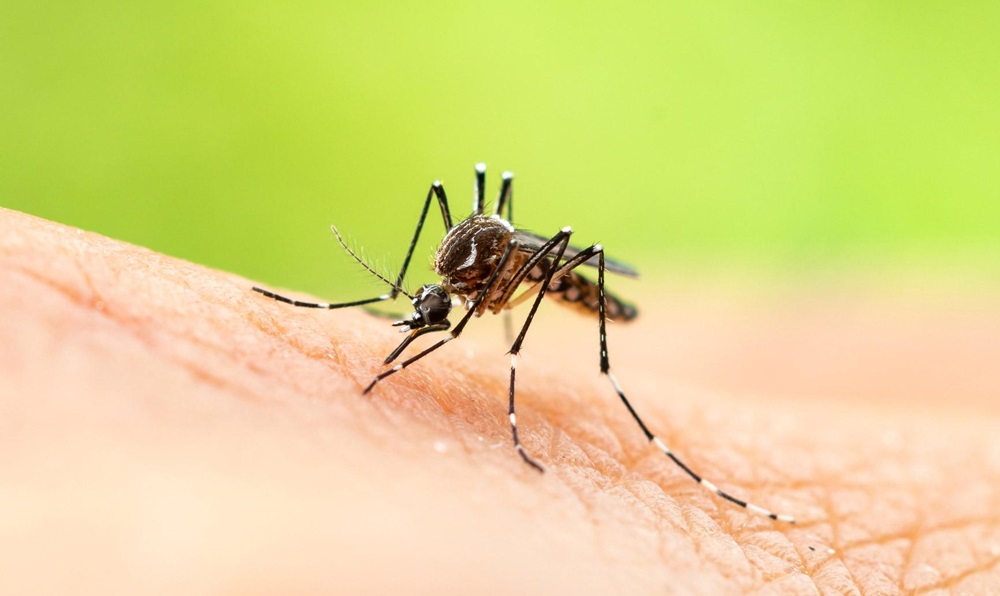Enjoy the Outdoors, Worry-Free: Your Guide to Effective Mosquito Control

Table of Contents
- Why Mosquito Control Matters
- Mosquito Prevention Tips
- Natural Mosquito Repellents
- Chemical Mosquito Repellents
- Maintaining Your Yard to Reduce Mosquitoes
- Community Efforts in Mosquito Control
- Impact of Weather on Mosquito Populations
- When to Consider Professional Mosquito Control Services
Why Mosquito Control Matters
Mosquitoes are more than just a nuisance. They are vectors for some of the world’s most deadly diseases, including West Nile virus, Zika virus, and malaria. Understanding the importance of effective mosquito control is crucial for safeguarding your health and well-being. Millions of people die from mosquito-related illnesses every year across the world, underlying the dire need for comprehensive management strategies to mitigate these risks.
Implementing a systematic approach to mosquito management, such as engaging professional mosquito control in Boston, is essential for reducing the threat of mosquito-borne illnesses. Beyond personal protection, effective mosquito control can also significantly raise your standard of living by enabling you to enjoy outdoor spaces without being constantly pestered by these insects.
Mosquito Prevention Tips
- Remove any standing water, as mosquitoes grow in stagnant water. Also, regularly empty and clean containers like flower pots, pet bowls, and bird baths to prevent them from becoming mosquito nurseries.
- Install screens: Ensure that the screens on your doors and windows fit tightly. This simple measure can prevent mosquitoes from entering your home.
- Use air conditioning: When possible, use air conditioning. Not only does it cool your home, but it also reduces humidity, making the environment less favorable for mosquitoes.
- Put on protective gear: When mosquito activity is at its highest, such as dawn and dusk, wear long-sleeved pants and use mosquito nets when sleeping outdoors or in unscreened areas.
Natural Mosquito Repellents
If you would rather avoid artificial chemicals, numerous natural mosquito repellents can be as effective. Essential oils like citronella, eucalyptus, and lavender have been scientifically proven to deter mosquitoes. When diluted with carrier oil, these oils can be used in diffusers and candles or applied directly to the skin.
Moreover, planting mosquito-repelling plants around your home can create a natural barrier. Marigolds, lavender, basil, and catnip are known for their mosquito-repelling properties. These plants can enhance your garden’s aesthetic while keeping pesky mosquitoes at bay.
Chemical Mosquito Repellents
Chemical repellents offer a highly effective way to protect yourself from mosquito bites. Health authorities endorse products containing DEET, picaridin, and IR3535 for their efficacy. Several types of these repellents, including sprays, lotions, and wipes, make it easy to find an option that suits your preferences.
When using chemical repellents, following the instructions on the label is essential to ensure maximum effectiveness and safety. Avoid applying repellent on cuts, wounds, or irritated skin, and wash your hands after application to prevent accidentally ingesting the chemicals.
Maintaining Your Yard to Reduce Mosquitoes
Depending on how well you maintain your yard, it can either be a haven for mosquitoes or a stronghold against them. Regular lawn care, including mowing and trimming shrubs, helps reduce the amount of mosquito habitat in your yard. These insects prefer cool, shady areas, so keeping your vegetation well-groomed reduces their hiding spots.
Additionally, pay attention to areas where water accumulates, such as gutters, tires, and garden equipment. Using mosquito dunks or larvicides in standing water like birdbaths and ponds can prevent mosquito larvae from developing into adults, significantly reducing the mosquito population in your yard.
Community Efforts in Mosquito Control
Individual actions can only go so far when it comes to mosquito control. Community-based efforts amplify the impact significantly. Participating in cleanup drives to remove trash and debris, educating neighbors about mosquito prevention, and working with local authorities to implement large-scale mosquito control measures can all contribute to a healthier, mosquito-free community.
Impact of Weather on Mosquito Populations
The weather, behavior, and population dynamics significantly impact mosquito populations. Warm, wet conditions create ideal breeding environments for mosquitoes, leading to population surges. Conversely, extreme heat or drought conditions can limit mosquito activity and reduce their numbers.
Recognizing weather trends might help you plan and prepare for mosquito activity. For instance, swift action to eliminate standing water can prevent a spike in the mosquito population after heavy rain. Similarly, during periods of intense heat, staying indoors during peak mosquito activity times can minimize your exposure to bites.
When to Consider Professional Mosquito Control Services
Despite the best personal and community mosquito control efforts, professional intervention is sometimes necessary. Professional mosquito control services offer advanced solutions, such as targeted treatments and ongoing maintenance plans, that can effectively reduce mosquito populations.
If mosquito populations become overwhelming or you live in an area with a high risk of mosquito-borne illnesses, considering professional services can provide the peace of mind you need. These experts can assess your property, identify problem areas, and implement customized strategies to manage and reduce mosquito activity, ensuring a safer and more comfortable environment for you and your family.







